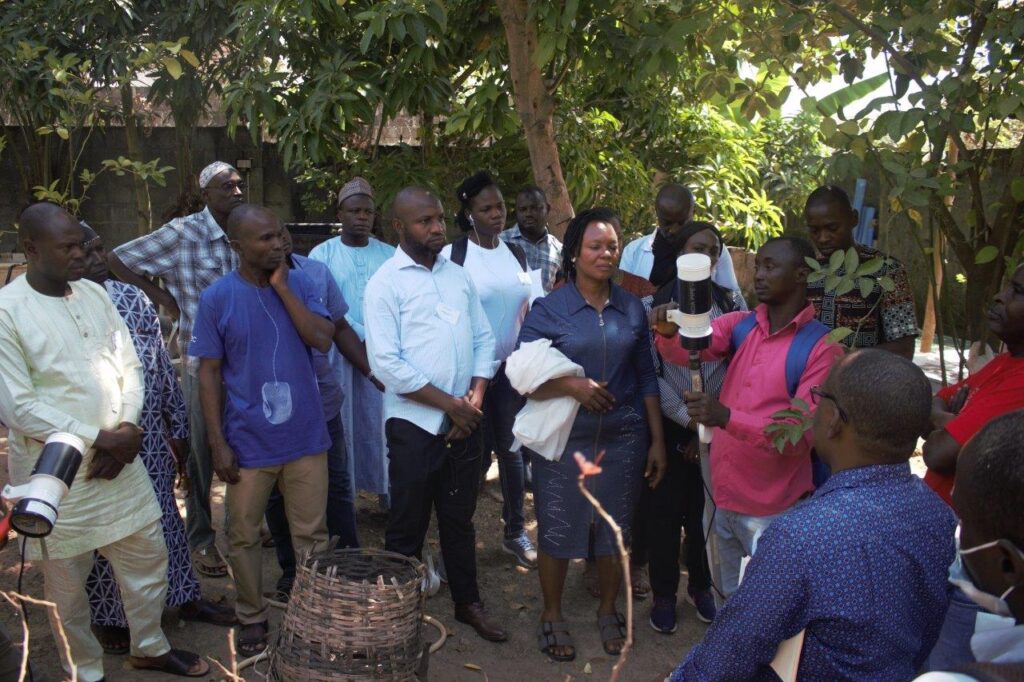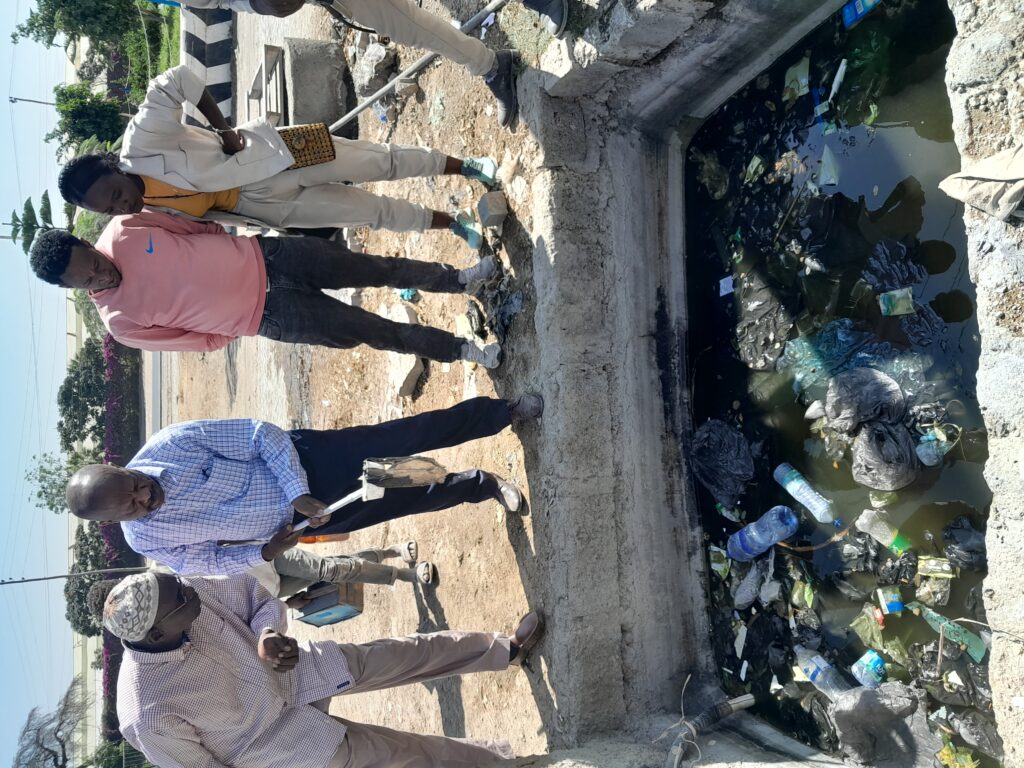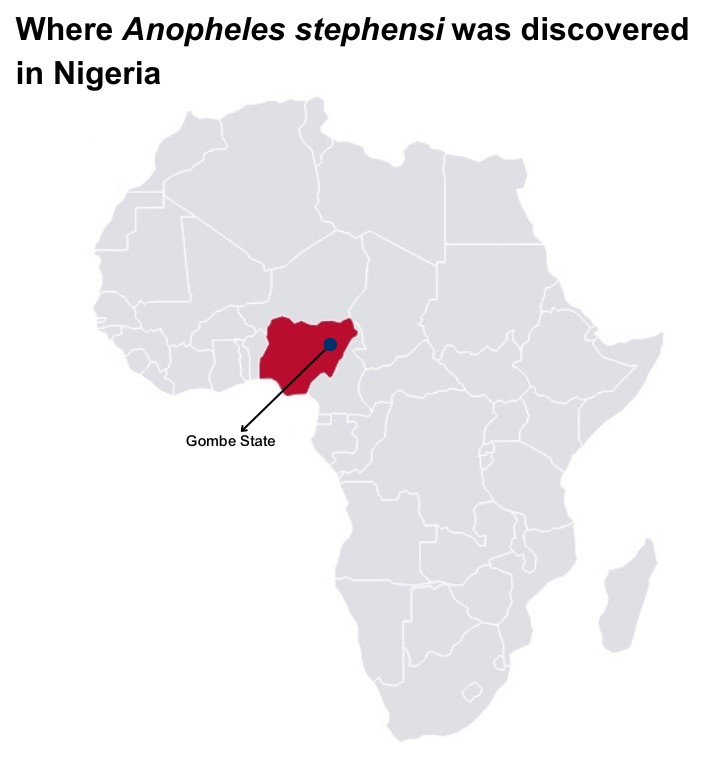Dr. Auwal Al-Hassan is a professor and entomologist at Abubakar Tafawa Balewa University in Bauchi State, Nigeria. As well as teaching students, he studies insects that transmit diseases and how to control them from spreading.
Dr. Al-Hassan’s latest area of research focuses on a malaria-transmitting mosquito called Anopheles stephensi, also known as An. stephensi. This mosquito, typically found in Asia, is relatively new to Africa. Gaining insight into its behavior is critical for assessing and limiting its spread.
“This mosquito has the potential to impede the progress already made in the fight against malaria due to its resistance to commonly used insecticides and its different behavior compared to other malaria mosquitoes we see here,” says Dr. Al-Hassan.
Unlike mosquitoes commonly found in Africa, which thrive in rural areas during the rainy season and primarily lay their eggs in naturally occurring ponds and puddles, An. stephensi can also breed in water storage containers, wells, and other places water collects, such as plastic tanks, cisterns, and discarded tires. This means it can survive through dry periods and in urban areas, changing where malaria typically occurs. An. stephensi is also resistant to insecticides used against other mosquitoes, and usually bites and rests outdoors. So, control tools that have been used in the past to protect people from malaria—insecticide-treated bed nets and spraying indoor walls of homes with insecticide—may not be as effective against this mosquito.
The An. stephensi species of mosquito was first detected in Nigeria in Biliri Local Government Area, Gombe State in 2020 by researchers at Gombe State University working in collaboration with the Nigeria Institute of Medical Research and the National Malaria Elimination Program (NMEP).
Given that more than half of Nigeria’s population lives in urban areas, this mosquito species is a major concern for malaria control efforts in the country. Nigeria already accounts for over a quarter of global malaria cases.
The U.S. President’s Malaria Initiative (PMI) is supporting Nigeria’s NMEP to monitor the possible spread of the mosquito species. In November 2022, PMI trained seven researchers, including Dr. Al-Hassan, and 14 entomology technicians selected from universities and research institutes across seven states in the country to strengthen their expertise in surveillance and identification of An. stephensi.

PMI VectroLink training researchers and entomology technicians on how to collect adult Anopheles stephensi mosquitoes. Photo credit: Ifeanyi Okeke, PMI VectorLink Nigeria.
PMI VectorLink Ethiopia Technical Manager Dr. Meshesha Balkew, who has been involved in An. stephensi surveillance and control efforts in Ethiopia, joined the training virtually and shared best practices on how to identify the breeding and resting sites of this species as well as how to identify adult An. stephensi mosquitoes.
Later, Dr. Al-Hassan traveled to Ethiopia for additional hands-on training, where he learned about larval source management (LSM) – one of the main strategies for controlling An. stephensi. This strategy involves treating water containers where the mosquitoes breed with larvicide, which kills them in their immature stage.

Dr. Balkew from PMI VectorLink Ethiopia shows Dr Al-Hassan and others how to treat a water-holding container with larvicide. Photo credit: Dr. Lazarus Samdi, PMI VectorLink Nigeria.
With well-trained researchers distributed across the country, the next step for Nigeria is to enhance surveillance of An. stephensi and apply new skills to rapidly assess suspect samples. Data collected by researchers like Dr. Al-Hassan can help Nigeria’s NMEP determine the spread of this mosquito and the best way to combat it to keep communities safe from potentially deadly malaria.
“This knowledge will ultimately provide us with a basis to assess the effectiveness of any efforts to control or eliminate An. stephensi in the country,” said Dr. Al Hassan.
In Africa, PMI has trained almost 100 researchers and entomologists and 100 community mosquito collectors and insectary technicians on how to monitor Anopheles stephensi behavior and support larval source management to control the mosquitoes and limit the spread of malaria. To learn more about PMI’s work responding to Anopheles stephensi, visit our website here.
Cover photo: Dr. Auwal Al-Hassan looking at the structure of an Anopheles stephensi mosquito through a microscope. Photo credit: Dr. Lazarus Samdi, PMI VectorLink Nigeria.
From 2017 to 2023, the PMI VectorLink Project has worked across 25 countries in sub-Saharan Africa as well as Cambodia and Colombia to equip countries to plan and implement safe, cost-effective, and sustainable indoor residual spraying, insecticide-treated net distributions, and other life saving interventions to prevent malaria. PMI VectorLink has also strengthened the capacity of country governments to use data to support the optimal deployment of vector control tools within their country.

